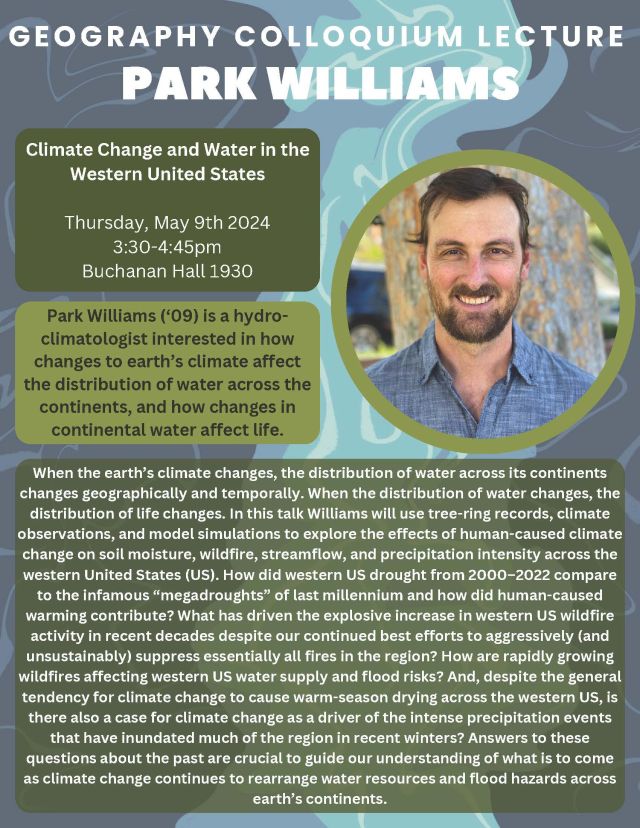Geography Colloquium Series - Climate Change and Water in the Western United States

When the earth's climate changes, the distribution of water across its continents changes geographically and temporally. When the distribution of water changes, the distribution of life changes. In this talk Williams will use tree-ring records, climate observations, and model simulations to explore the effects of human-caused climate change on soil moisture, wildfire, streamflow, and precipitation intensity across the western United States (US). How did western US drought from 2000-2022 compare to the infamous "megadroughts" of last millennium and how did human-caused warming contribute? What has driven the explosive increase in western US wildfire activity in recent decades despite our continued best efforts to aggressively (and unsustainably) suppress essentially all fires in the region? How are rapidly growing wildfires affecting western US water supply and flood risks? And, despite the general tendency for climate change to cause warm-season drying across the western US, is there also a case for climate change as a driver of the intense precipitation events that have inundated much of the region in recent winters? Answers to these questions about the past are crucial to guide our understanding of what is to come as climate change continues to rearrange water resources and flood hazards across earth's continents.
Park Williams ('09) is a hydro-climatologist interested in how changes to earth's climate affect the distribution of water across the continents, and how changes in continental water affect life.